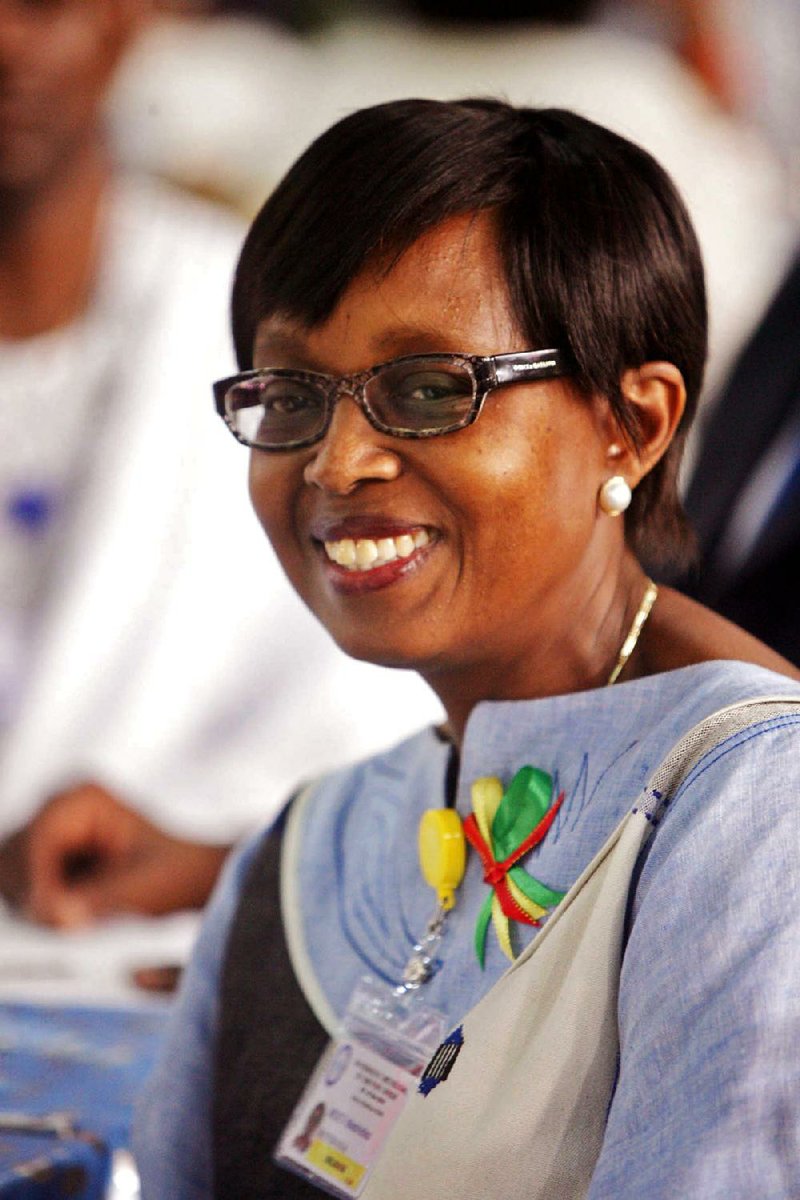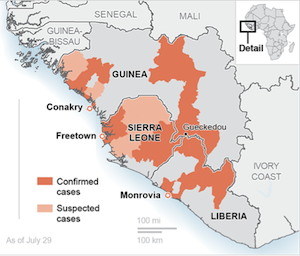COTONOU, Benin -- With nearly 5,000 people killed by Ebola in West Africa, the World Health Organization elected a new director Wednesday of its Africa office, which has been accused of bungling the response to the virus outbreak in its early stages.
The new chief, Matshidiso Moeti, is a doctor from Botswana and a WHO veteran who stepped down as deputy director for Africa in March, the same month the crisis was announced.
The results of the five-candidate election were made public at a meeting of the United Nations agency in Benin.
"I hope, with all the control efforts that are now in place, the situation will have improved by the time I take office in February," Moeti said.
She said the health systems in hard-hit Sierra Leone, Liberia and Guinea have been devastated and need to be rebuilt and that warning systems and monitoring capabilities must be improved ahead of any future Ebola outbreak.
In an internal draft document obtained by The Associated Press last month, the WHO accused its Africa office of initially botching the response to Ebola, deriding many of its regional staff members as "politically motivated appointments."
The report said WHO staff members in Africa refused to help get visas for outside experts and compromised the containment effort in other ways.
The outgoing regional director, Dr. Luis Sambo of Angola, is completing his second five-year term and was ineligible to run again. He has declined numerous interview requests.
In a report on lessons learned, released ahead of this week's meeting, the Africa office attributed the spread of the often-lethal virus to such factors as poor awareness and badly trained health workers.
Aboubakar Sidiki Diakite, inspector general for Guinea's health ministry, welcomed the election as an opportunity for change.
"A change always brings new impetus," he said this week. The new director will find "weaknesses" in the system that need to be remedied, he said.
Representatives of the WHO's 47 African member countries voted by secret ballot for the regional director.
In her campaign brochure, Moeti listed one of her priorities as building a responsive, effective WHO. Moeti previously held posts in Botswana's Health Ministry and also led the WHO's Malawi office.
The circumstances of her departure as Sambo's deputy in March were not immediately clear.
In other developments, President Barack Obama asked Congress for $6.2 billion in emergency funds to fight Ebola in West Africa and strengthen U.S. defenses against the disease.
Meanwhile, the WHO said Wednesday that 4,818 deaths now have been reported from Ebola, and that every district of Sierra Leone and Liberia has been affected.
The situation this week was particularly dire in Sierra Leone, with 435 new confirmed cases. Treatment centers are urgently needed there, officials have said. One built by Britain opened Wednesday outside the capital, Freetown.
The center in Kerry Town contains an 80-bed facility to be managed by Save the Children and a 12-bed unit for infected health care workers. The smaller one will be staffed by British army medics.
A U.S.-built facility in Liberia is to open to patients Saturday.
Britain's Department for International Development said there are only 326 treatment beds in Sierra Leone, a country that has reported about 350 cases per week over the past several weeks.
That is worrying because the key to stemming the outbreak is getting sick people out of their homes and into treatment centers where they can no longer infect others, health officials have said.
The WHO said 4,500 health workers are still needed to fight the outbreak in West Africa. More than 500 health workers have become infected, reducing their ranks and making it difficult to recruit more.
Foreign medical workers who have been infected have been evacuated for treatment abroad.
A Ugandan man who became infected while working for an aid group in West Africa has "significantly improved" since arriving in Germany on Oct. 3 for treatment, the University Hospital Frankfurt said.
And a Spanish nursing assistant who recovered from Ebola was released Wednesday from a hospital in Madrid.
Information for this article was contributed by David Rising, Alan Clendenning, Ciaran Giles, Jonathan Paye-Layleh, Clarence Roy-Macaulay, Angela Charlton, Sarah DiLorenzo and Krista Larson of The Associated Press.
A Section on 11/06/2014


